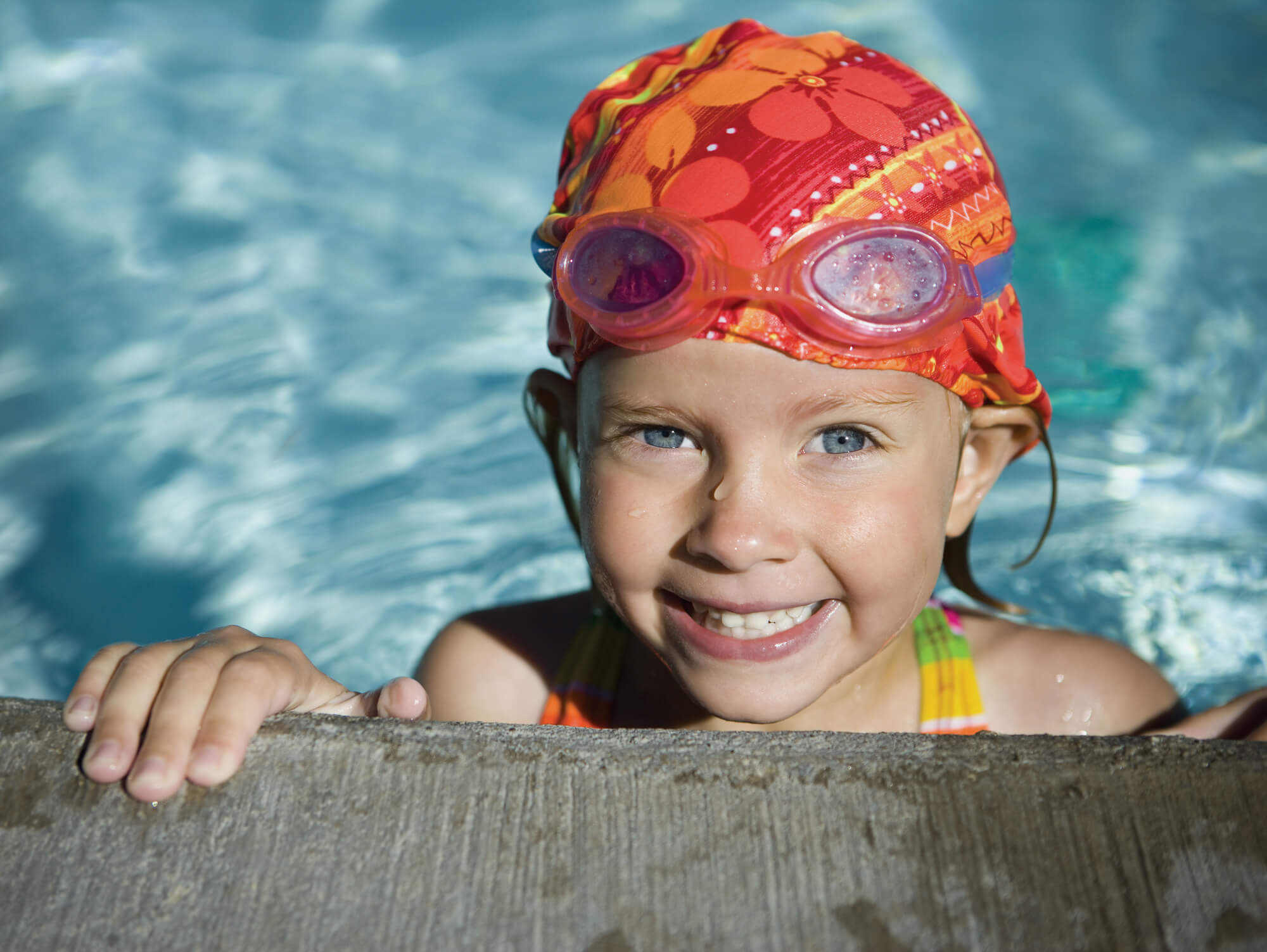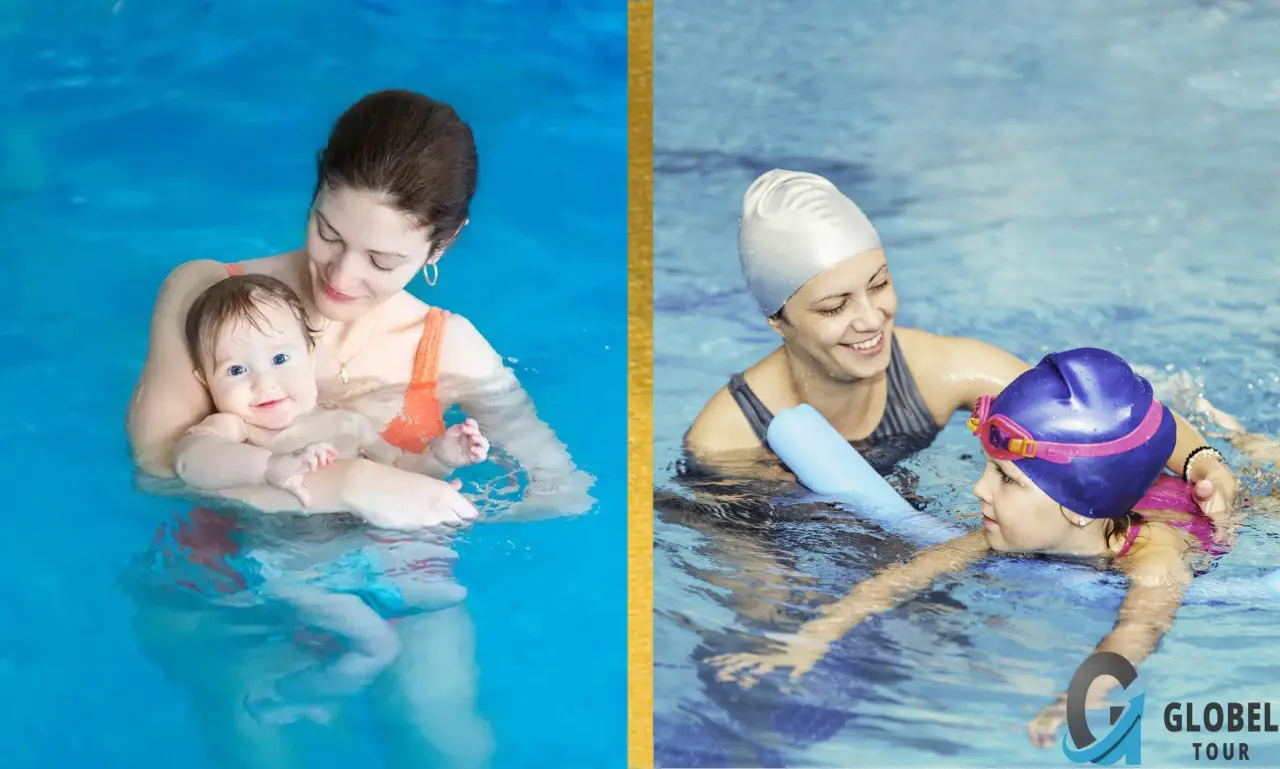Swimming lessons are not only a fun and engaging activity for children but also a crucial life skill that can have long-lasting benefits. When introduced to swimming early, toddlers can develop key motor skills, improve their physical coordination, and, most importantly, acquire water safety knowledge that could save their lives. Toddlers swimming lessons offer a safe, enjoyable way to introduce young children to water, allowing them to gain essential skills in a fun and supportive environment.
In this article, we will explore the importance of toddler swimming lessons, how to choose the right program, the benefits these lessons offer to both children and parents and what you can expect during the learning process. Whether you’re considering swimming lessons for your toddler to boost their confidence in the water or looking to enhance their physical development, this guide will help you make an informed decision.
Why Are Toddlers Swimming Lessons Important?

1. Water Safety: The Lifesaving Benefit of Early Swimming Education
Water safety is the most important reason why parents should consider toddlers swimming lessons. Drowning is one of the leading causes of accidental death for young children, and toddlers are particularly vulnerable due to their curiosity and lack of experience in or around water. Even the most vigilant parents can have moments when their child is near a pool, lake, or even a bathtub.
By starting swimming lessons early, toddlers can be taught vital water safety skills, such as:
- Floating: A crucial skill that helps toddlers stay above the water when they’re in distress.
- Blowing bubbles: Learning how to exhale underwater teaches children how to stay calm when their face is submerged.
- Entry and exit: Knowing how to safely enter and exit the pool reduces the risk of accidents.
- Turning and swimming to safety: Learning to roll over onto their back or swim to the poolside can help save lives.
The earlier these skills are taught, the more natural they will become for children, ensuring that they are prepared in case they ever find themselves in a potentially dangerous situation in or around water.
2. Physical Benefits: Developing Strength and Coordination
Swimming is an excellent full-body exercise that promotes physical development in toddlers. When children are introduced to toddlers’ swimming lessons, they start building strength, coordination, and endurance from an early age. Swimming movements such as paddling, kicking, and floating help develop both fine and gross motor skills.
Some of the physical benefits of swimming for toddlers include:
- Improved muscle strength: Swimming helps develop arm, leg, and core muscles.
- Better balance and coordination: The water provides resistance, making every movement a low-impact exercise that improves stability and coordination.
- Enhanced cardiovascular health: Swimming is an aerobic exercise that gets the heart pumping, improving circulation and lung capacity.
These physical benefits set the foundation for healthy growth, aiding toddlers in their overall development and fostering an active lifestyle.
3. Cognitive and Emotional Growth
The benefits of toddler swimming lessons extend far beyond just physical skills. Swimming has been shown to have positive effects on cognitive development, especially for children under the age of five. The multi-sensory experience of swimming helps improve memory, concentration, and problem-solving skills as toddlers learn to listen to instructions and process the information they’re being given.
Swimming also promotes emotional growth by helping toddlers:
- Build confidence: As toddlers gain new skills in the water, such as floating, kicking, and blowing bubbles, they develop a sense of achievement and self-worth.
- Learn patience: The process of learning how to swim involves gradual steps and practice, helping toddlers learn the importance of persistence and patience.
- Develop emotional regulation: Swimming encourages toddlers to remain calm, even in slightly challenging situations, such as when their face is submerged or when they need to float on their backs.
These emotional and cognitive benefits not only improve a toddler’s ability to learn and interact with others but also help them manage their emotions in everyday situations.
The Benefits of Toddler Swimming Lessons
1. Enhanced Social Skills
While learning to swim, toddlers often participate in group classes. This setting provides an excellent opportunity for children to develop social skills in a controlled and enjoyable environment. Social interactions in swimming classes allow toddlers to practice essential life skills, such as:
- Taking turns and sharing toys or floatation devices.
- Listening to instructions and following the teacher’s guidance.
- Building friendships with other children, and learning how to interact in group settings.
Even at a young age, toddlers begin to learn cooperation and communication, which are vital life skills that will help them in school and later in life.
2. Emotional Bonding with Parents
Many toddler swimming lessons encourage parent participation, particularly for children who are under the age of three. Parents are often required to enter the water with their toddler to provide support and comfort. This can be an incredibly rewarding experience, as it strengthens the emotional bond between parent and child.
Parents actively participating in swimming lessons can:
- Offer reassurance and encouragement, helping their child feel more comfortable and confident.
- Create positive experiences together, which fosters trust and emotional security.
- Model behavior, such as calmness and patience, which children often mimic.
The parent-child interaction during swimming lessons enhances attachment and creates a positive learning experience for the child.
3. Better Sleep Patterns
Believe it or not, toddlers’ swimming lessons can contribute to better sleep! The physical activity involved in swimming helps toddlers expend energy, which can lead to improved sleep patterns. After a fun-filled day of swimming, many toddlers sleep more soundly and deeply, which benefits both their physical and cognitive growth.
Additionally, swimming is a great way to help toddlers release built-up energy, which can result in calmer evenings, making it easier for both toddlers and parents to enjoy peaceful nights.
What to Expect from Toddler Swimming Lessons
1. Class Structure
Toddlers swimming lessons typically follow a structured, age-appropriate curriculum that focuses on water safety, coordination, and building confidence. Classes are often divided into levels based on age or ability, allowing toddlers to progress at their own pace.
In the initial stages, the focus is primarily on making toddlers comfortable in the water. Over time, the lessons will gradually introduce new skills, such as:
- Blowing bubbles and holding breath.
- Floating on their back.
- Kicking and paddling.
- Basic strokes for those ready for more advanced techniques.
The lessons usually involve a lot of play, songs, and games, as toddlers learn best through interactive and enjoyable activities.

2. Parent Involvement
Many swimming programs encourage parent participation, especially for younger toddlers who may need extra reassurance and comfort. Parent-child classes often allow the adult to actively engage with the toddler during the lesson, offering emotional support while the child learns new skills.
For older toddlers, there may be classes where the child can swim on their own, with the instructor providing guidance and support. This allows the child to build independence in the water while still receiving supervision.
3. Safety Measures and Pool Environment
When enrolling in toddler swimming lessons, it’s essential to consider the safety standards of the pool and the facility. Reputable swimming schools should adhere to strict safety protocols, including:
- Lifeguards on duty.
- Shallow pools that are designed for young children.
- Non-slip surfaces to prevent accidents.
- Certified instructors who are trained in infant and toddler CPR and first aid.
Before committing to a program, always check the safety standards of the facility to ensure your toddler will be in a safe and supervised environment.
4. Progression and Advancement
As toddlers become more confident and skilled in the water, they will be introduced to progressively more challenging activities. Depending on the program, the child may be introduced to basic strokes, including the front crawl, backstroke, or breaststroke. However, at the toddler stage, the focus will remain primarily on water safety and building comfort with the water.
The goal of toddlers’ swimming lessons is to make swimming a natural and enjoyable activity for children while ensuring they understand the importance of water safety. The pace of progression varies from child to child, so it’s important to be patient and allow your toddler to develop skills at their speed.
Choosing the Right Swimming School for Your Toddler
1. Research the Facility and Instructors
When selecting a swimming school, make sure the instructors are certified by reputable organizations like the American Red Cross, the YMCA, or Swim England. Certification ensures that the instructors are trained to teach young children in a safe, effective, and supportive manner.
In addition, check the facility for proper safety measures, including clean pools, appropriate temperatures, and accessible emergency equipment.
2. Class Size and Teacher-to-Student Ratio
Smaller class sizes are always preferable for toddlers. A lower teacher-to-student ratio allows for more personalized attention and ensures that the instructor can focus on each child’s needs. Typically, a class with no more than 5-8 students is ideal for toddlers, as this ensures safety while also providing opportunities for each child to receive hands-on instruction.
3. Age-Appropriate Programs
Different schools offer different types of programs. Look for programs specifically designed for toddlers, as these lessons focus on early water introduction, safety skills, and socialization. Programs that include music, songs, and games tend to be more engaging for toddlers and encourage participation.
Conclusion
Toddlers swimming lessons are a wonderful opportunity for young children to learn valuable skills that can improve their physical, cognitive, and emotional development. From water safety to building self-confidence and social skills, swimming is a crucial activity for toddlers that provides a wide range of benefits. By starting swimming lessons early, parents can ensure their children gain essential water safety skills, develop better coordination and balance, and enjoy the fun of swimming in a supportive environment. Whether you’re aiming to teach your toddler life-saving skills, promote their overall health, or provide a great bonding experience, swimming lessons are a perfect way to support your child’s growth and development.




